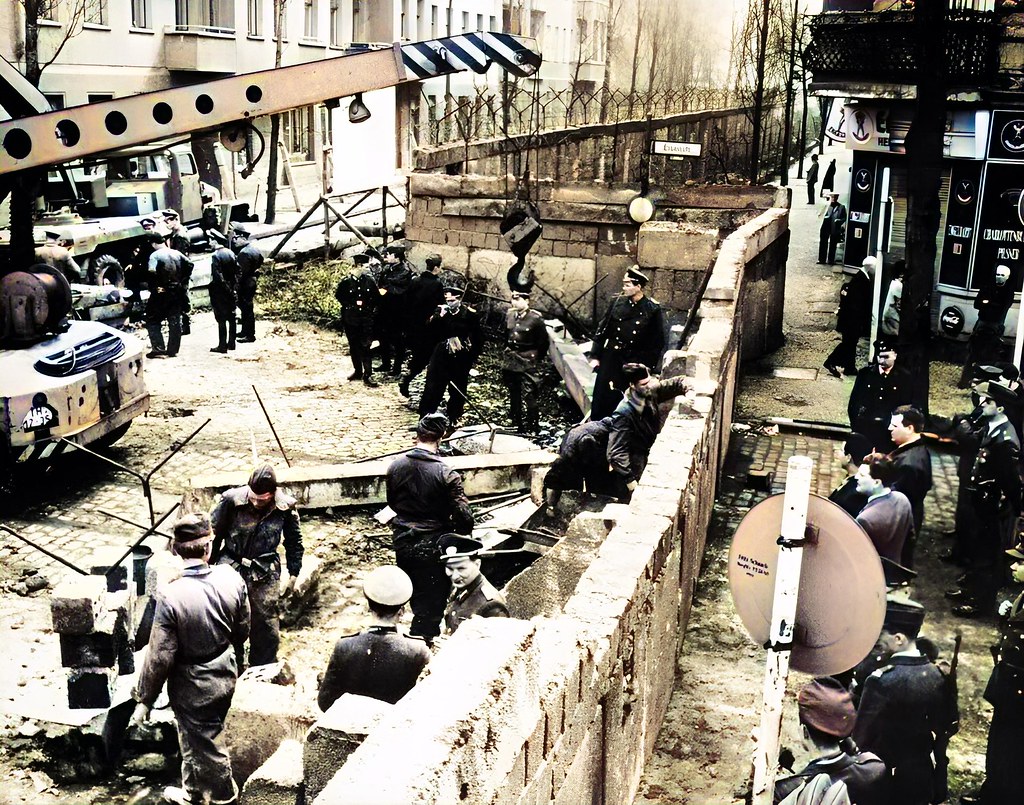On the night of November 9, 1989, the world watched in awe and disbelief as the Berlin Wall, the iconic symbol of division and oppression, fell. This monumental event marked not only the physical reunification of East and West Berlin but also the symbolic end of the Cold War era. In this blog post, we’ll explore the significance of the fall of the Berlin Wall and its profound impact on global politics and history.

The Construction of the Berlin Wall
To understand the significance of its fall, we must first examine the history of the Berlin Wall. Constructed by the German Democratic Republic (East Germany) in 1961, the wall was intended to stem the tide of defections from East to West Berlin and to symbolize the ideological divide between communism and capitalism. It stood as a stark physical and ideological barrier, separating families, friends, and an entire city.

The Symbol of Oppression
For nearly three decades, the Berlin Wall stood as a grim reminder of the division of Europe and the suppression of freedom. Its heavily fortified border, guarded by armed guards and watchtowers, represented the repressive nature of the communist regime in East Germany. Countless lives were shattered by its presence, with families torn apart and individuals risking their lives to escape to the West.
Winds of Change
By the late 1980s, winds of change were sweeping across Eastern Europe. Mikhail Gorbachev’s policies of glasnost (openness) and perestroika (restructuring) in the Soviet Union had unleashed a wave of reform movements throughout the Eastern Bloc. In East Germany, growing discontent with the repressive regime and mounting pressure for political reform culminated in mass protests and demonstrations.
The Fall of the Wall
On the evening of November 9, 1989, East German authorities unexpectedly announced that citizens would be allowed to travel freely to the West. Thousands of East Berliners flocked to the checkpoints, where they were greeted with open arms by West Berliners. Overjoyed crowds climbed atop the wall, chipping away at its concrete with hammers and pickaxes. The Berlin Wall, once an impenetrable barrier, had become a symbol of liberation and unity.

Impact on Global Politics
The fall of the Berlin Wall sent shockwaves around the world, signaling the end of the Cold War era and the beginning of a new era of hope and possibility. It paved the way for the reunification of Germany and the dismantling of the Iron Curtain that had divided Europe for decades. The collapse of communism in Eastern Europe heralded the triumph of democracy and capitalism and reshaped the geopolitical landscape.
Legacy of Freedom
Thirty years after its fall, the Berlin Wall remains a powerful symbol of freedom and resilience. Its legacy serves as a reminder of the human spirit’s capacity to overcome oppression and division. The reunification of East and West Germany stands as a testament to the enduring desire for unity and reconciliation.

The fall of the Berlin Wall was a momentous event that changed the course of history and ushered in a new era of hope and optimism. It marked the end of the Cold War era and the beginning of a new chapter in global politics. As we commemorate this historic anniversary, let us remember the sacrifices of those who fought for freedom and democracy and reaffirm our commitment to building a world free from walls and barriers.

